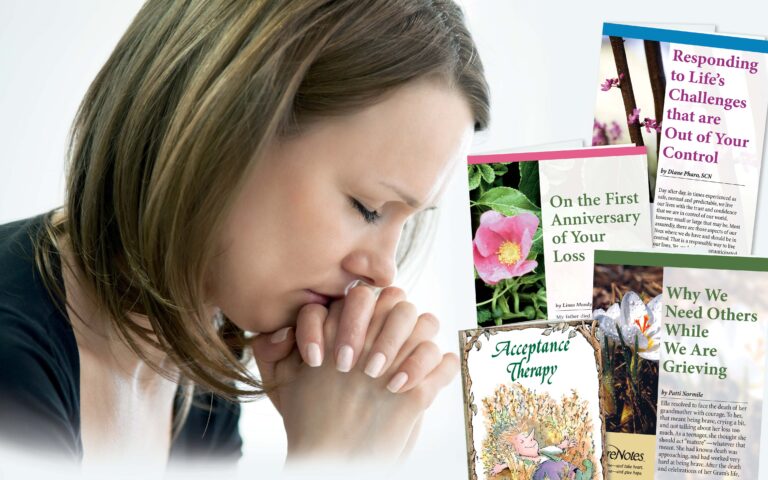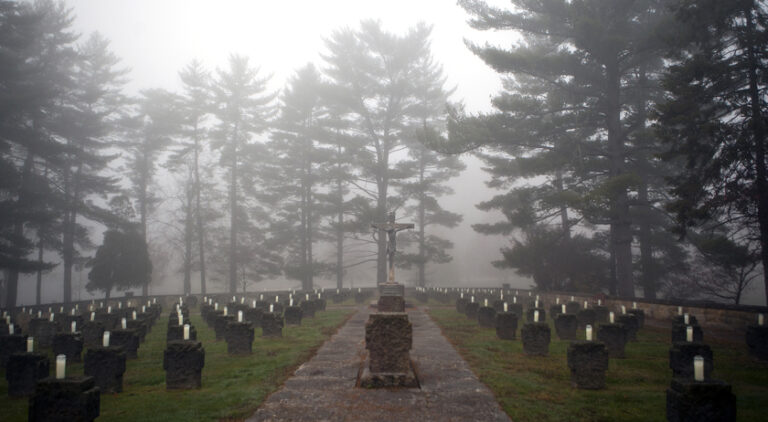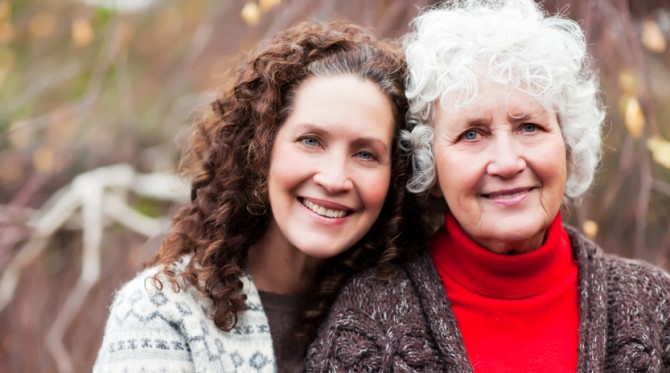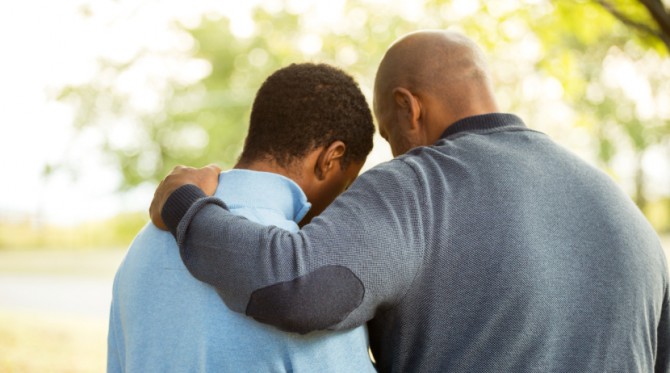by Nancy Stout
As I write this, I am just weeks away from the first anniversary of the death of a very dear friend. Rick was just past his 50th birthday—which I helped him celebrate—when he died suddenly and unexpectedly, while finishing up his usual morning run. All of us who knew and loved Rick were absolutely devastated, and those first few days after his death became a blur of pain, sadness, anger, and confusion as we gathered to mourn, to try to make sense of the loss, and also to remember the wonderful gift that Rick was in all of our lives, as a friend and as a beloved priest.
Then came all the days afterward…and now we approach the first anniversary. Rick’s loved ones have been through the seasons with all of the “firsts”—holidays, birthdays, anniversaries, last visits. Each of these moments brought its own special grief, as it will for you as you move through the first year of loss.
I lost a dear friend. You may have lost your spouse or a close family member. Your adjustment to this loss may be immense, and sometimes you will feel overwhelmed by the changes in your daily life because this person is missing. But if you move through your loss a day at a time, you will slowly make progress in coping with and accepting it. The one thing to try to avoid is getting “stuck” in your pain and sadness during this first year, unable to work through or move beyond it.
So keep working with it. Even though it may not feel this way right now, time, and your own efforts, will begin to heal your heart. You can achieve a sense of peace after this loss. Here are some steps that have helped me through the first year.
1. Feel the pain. It is human nature to try to avoid or delay feeling the pain—whether it is physical or emotional pain. We don’t like it; we don’t think it can possibly be good for us. We don’t want to feel “bad”—and pain is bad, isn’t it?
Feeling all of this pain is the first step in the grieving process and in making your way through the first year.
At the same time, as you move through the pain, you can add some balance to your experience by spending time each day nurturing life. Whatever feeds your spirit will strengthen your connection with life and with the loved one you lost.
2. Reach out to others who share the pain. The gathering of community is very important after a significant loss. We want to be with others who understand and are sympathetic to our loss. There is comfort in shared sadness and grief, and more freedom to express your sorrow.
This reaching out can carry through the entire first year. When a holiday or significant date rolls around on the calendar, you may think you’re the only one who can’t get your loved one off your mind. You may start to wonder what’s wrong with you. But contact someone else who you know was affected by the loss, and you will be reassured quickly that what you’re going through is natural.
3. Cherish and celebrate the memories. Initially, it is natural to be focused on the death and the circumstances around it, but as time passes, it becomes easier to remember good times and joyful occasions that you shared with your loved one. And it is okay—and healthy—to smile or laugh at what you remember. As time passes, when you think of the person, you will be more likely to remember with a smile and with gratitude the gift this person has been in your life.
4. Create your own rituals and memorials. To honor the memories you have, you can engage in different rituals and memorials that will help you move through the pages of the calendar, and also to move through the grief process.
Pay attention to holidays, anniversaries, birthdays, and other special days. Try to anticipate these dates and take some time to plan ahead for them.
5. Find comfort and hope in prayer. Nothing seems to draw us into our faith traditions more quickly than the death of a loved one. Even if we thought we had it all together before that, when loss comes and we feel the pain of that loss, we begin to ask the “big” questions of life again. Loss seems to have this power in our lives, and it brings the opportunity to seek comfort, peace, and healing in your faith tradition and in prayer to God.
The first year after a loved one’s death is uniquely painful. But if you pay attention to your grief during this time, you will be better able to accept the loss and to be at peace.
This excerpt taken from Five Ways to Get Through the First Year of Loss CareNote.






